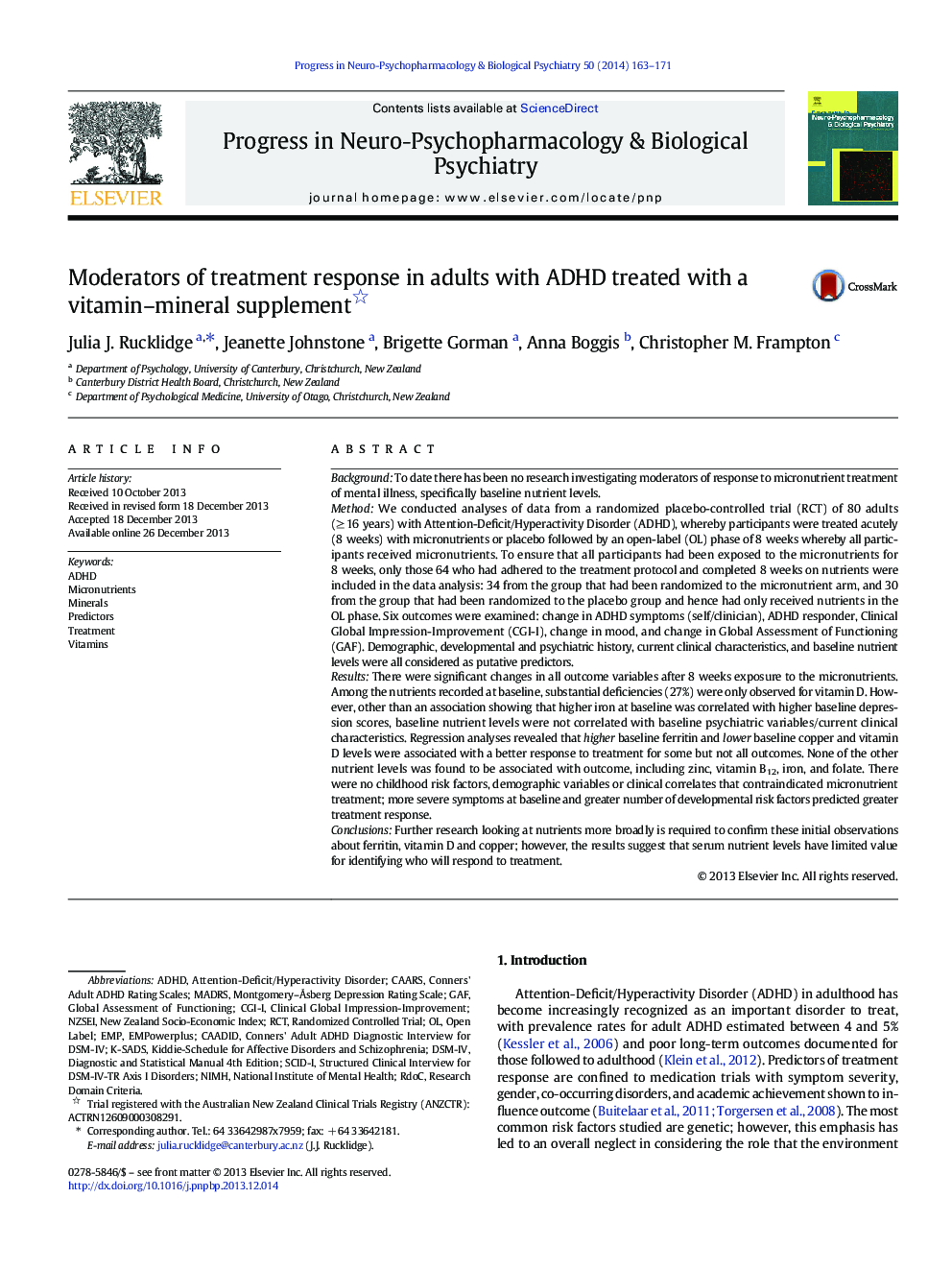| کد مقاله | کد نشریه | سال انتشار | مقاله انگلیسی | نسخه تمام متن |
|---|---|---|---|---|
| 5844479 | 1561044 | 2014 | 9 صفحه PDF | دانلود رایگان |

- Micronutrients are increasingly being used to treat mental illness.
- No studies have investigated whether baseline levels can predict response.
- Baseline nutrient levels were mostly within normal range except vitamin D.
- Only a few nutrients were associated with outcome.
- Baseline serum levels appear limited in identifying who might benefit from treatment.
BackgroundTo date there has been no research investigating moderators of response to micronutrient treatment of mental illness, specifically baseline nutrient levels.MethodWe conducted analyses of data from a randomized placebo-controlled trial (RCT) of 80 adults (â¥Â 16 years) with Attention-Deficit/Hyperactivity Disorder (ADHD), whereby participants were treated acutely (8 weeks) with micronutrients or placebo followed by an open-label (OL) phase of 8 weeks whereby all participants received micronutrients. To ensure that all participants had been exposed to the micronutrients for 8 weeks, only those 64 who had adhered to the treatment protocol and completed 8 weeks on nutrients were included in the data analysis: 34 from the group that had been randomized to the micronutrient arm, and 30 from the group that had been randomized to the placebo group and hence had only received nutrients in the OL phase. Six outcomes were examined: change in ADHD symptoms (self/clinician), ADHD responder, Clinical Global Impression-Improvement (CGI-I), change in mood, and change in Global Assessment of Functioning (GAF). Demographic, developmental and psychiatric history, current clinical characteristics, and baseline nutrient levels were all considered as putative predictors.ResultsThere were significant changes in all outcome variables after 8 weeks exposure to the micronutrients. Among the nutrients recorded at baseline, substantial deficiencies (27%) were only observed for vitamin D. However, other than an association showing that higher iron at baseline was correlated with higher baseline depression scores, baseline nutrient levels were not correlated with baseline psychiatric variables/current clinical characteristics. Regression analyses revealed that higher baseline ferritin and lower baseline copper and vitamin D levels were associated with a better response to treatment for some but not all outcomes. None of the other nutrient levels was found to be associated with outcome, including zinc, vitamin B12, iron, and folate. There were no childhood risk factors, demographic variables or clinical correlates that contraindicated micronutrient treatment; more severe symptoms at baseline and greater number of developmental risk factors predicted greater treatment response.ConclusionsFurther research looking at nutrients more broadly is required to confirm these initial observations about ferritin, vitamin D and copper; however, the results suggest that serum nutrient levels have limited value for identifying who will respond to treatment.
Journal: Progress in Neuro-Psychopharmacology and Biological Psychiatry - Volume 50, 3 April 2014, Pages 163-171